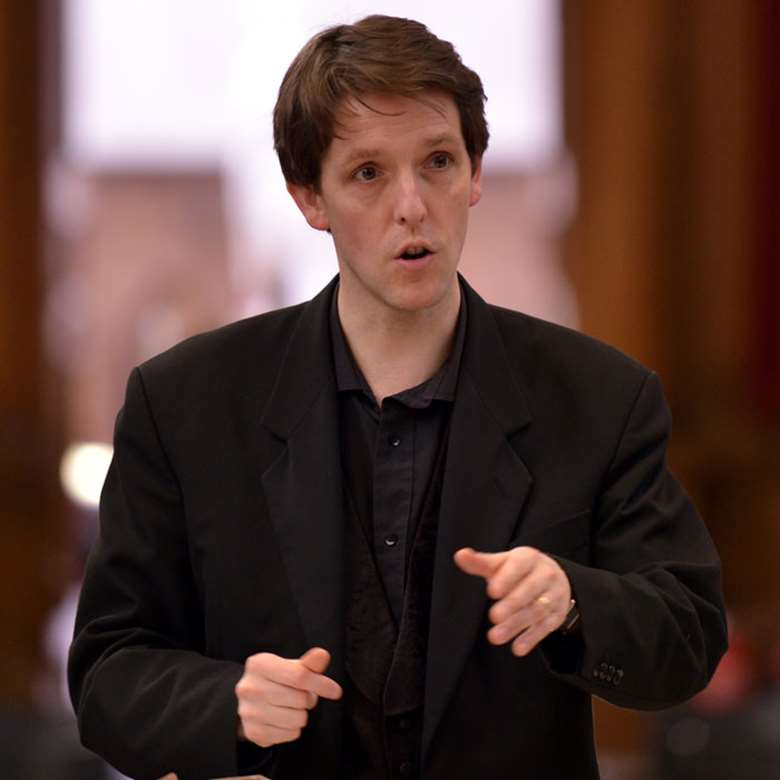Recording the choral works of William Mathias
Graham Walker
Friday, January 10, 2020
Graham Walker, Director of St John's Voice, St John's College, Cambridge, on the beauty of William Mathias's choral music

I had the privilege of meeting William Mathias in Bangor in 1998. I was 10 years old at the time, and a chorister at St John’s College Cambridge, directed by another eminent Welsh musician, George Guest.
We were in Wales to celebrate the 400th anniversary of the translation of the Old Testament into Welsh, by St John’s alumnus Bishop William Morgan (1545-1604). Morgan’s Old Testament was published in 1588, and it proved a seminal moment in the development of Christianity in Wales, so much so that, 400 years later, the Royal Mail issued First Day Covers for the anniversary, and – to my 10-year-old mind, at least – rather more importantly, the Choir of St John’s College, Cambridge was visiting Bangor.
I remember the meeting vividly: Mathias was in his mid-fifties, full of vitality and jollity, signing programmes for us choristers, chatting and joking with us. We were performing a new piece of his, which the College had commissioned, a setting of Psalm 19 from the Morgan Bible, which, of course, involved us singing in Welsh.
Singing in Welsh was a big thing at St John’s: we used to do a whole service in Welsh every St David’s Day, and Dr Guest was a huge advocate for Welsh music and singing in the language; even so, the words come thick and fast in this piece, and combining them with Mathias’s lively rhythms and sometimes unexpected melodic turns was something of a challenge, even to us seasoned Welsh-singers!
After leaving St John’s my connection with Welsh music, and with Mathias, dwindled to an occasional rendition of some of his more familiar Christmas carols; he seemed to have fallen out of fashion, a fate which often befalls composers in the decades after their death.
Years later, in the early 2000s, I came across his Learsongs and was instantly charmed by them: they embodied what I now see as his universal traits of melodic invention, attention to detail in text setting, lively rhythmic writing and an instantly recognisable harmonic style. I had the good fortune of performing these utterly delightful songs (written for children’s choir and piano duet) with a number of choirs, and was surprised that there appeared to be no recording of them.
Fast forward another fifteen years, by which stage I was back at St John’s, having started St John’s Voices. I was wondering about making a first professional recording with the choir. The Learsongs had never quite left me – I can’t read the Owl and the Pussycat to my children without hearing Mathias’s melody! – and I discovered that there was, inexplicably, still no recording of them. It seemed that Mathias had not quite yet emerged from his purdah, which while a great shame for his music presented a wonderful opportunity for us to explore some of his more neglected works.
Alongside Learsongs, two other major works were under-represented in the catalogue: Riddles, a substantial work for close harmony group, SATB choir, piano and bells, had never been recorded, and A May Magnificat, which must be one of his masterpieces, had only been recorded once. Putting these together with some of his more familiar works made a disc which brilliantly showcases his quirky and imaginative musical style, as seen through both sacred and secular lenses.
The choir found his music hugely enjoyable to sing, relishing the finely crafted melodies and lively rhythmic counterpoint, and everywhere we have performed his music he has gained new admirers. It seems to me that, finally, the music of William Mathias is being appreciated on its own terms, and I’m hugely proud to be a part of that re-discovery.
The new recording of William Mathias's choral music by St John's Voices and Graham Walker is out now on Naxos











